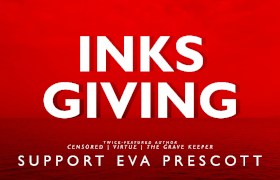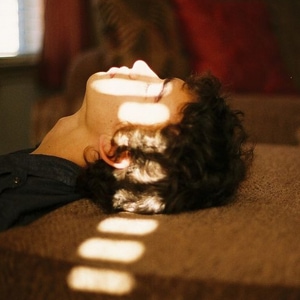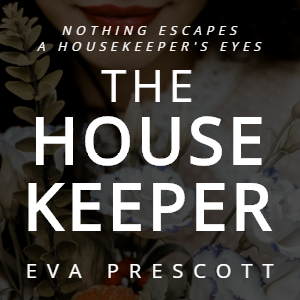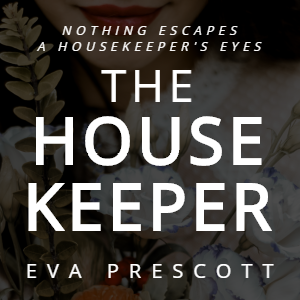Maisie Watson dreams that night. Something she hasn’t do for a long time.
Mama was cooking up corn soup. The kitchen was small and hot even from her early memories, brimming with humidity and shimmering disappointment. The dysfunctional air vent was roaring on its merry way, made excessive noise but not actually venting anything out. The warm evening sunlight slants off the shutter window, sprawling on the flour-covered countertop and piles of corn ears and husks. Mama stood by the stove, stirring the thick soup, her eyes heavy. It was a pleasant evening where everybody was in foul mood.
Kai, Maisie and Seyana gathered around the round dining table, each has their returned tests spread in front of them. Seyana and Maisie were sitting sit shoulder-to-shoulder, their thighs pressed against each other under the table. Their red C’s and D’s glowering at them. Kai was chatting away, happy to recite how his classmates flocked over him. Kai was always the braggy one, amongst the three, the one who fought to be the favourite child. Papa loved him. Papa and Kai were so similar to a kind of baffled. They talked the same way, liked the same show, walked the same gait, ate the same food. Indeed, Papa couldn’t be happier with a mini-Glenn by his side. They would visit a relative and Papa would cart out Kai with utmost pride and affection.
“Is that so?” Mama would say distractedly once in a while, more to remind herself to pay attention than to confirm with Kai that she’s listening.
Nobody needed to worry about Kai. He could talk the ground to erosion. He liked talking about his marks, and he extremely liked to talk about himself. Seyana hated that about Kai. He’s such a big self-centered dick, she sighed while Kai continued to drone on and on, and she rolled her eyes when Maisie cringed at the word dick. You’re too Catholic, Seyana would say. Seyana had opinions on everything, and she didn’t like anyone, for that, either.
Maisie had once tried to convince Seyana to see the positive in Kai, and soon gave up. Seyana simply didn’t have the patience nor the desire to marvel. While Maisie ponders how on Earth could Kai repeat the same things so many times yet making it sound anew at each try, all Seyana saw was a that he kept retrieving glorious stories to scrape some sympathy.
Your problem, Maisie, Seyana had said, sometimes during their childhood, Is that you’re blind to the bad side of people. I know you’re kind-hearted, but you’ve to stop assuming that to others.
At some points, the dream drifts back to when they were having soup. Mama sat down between the three of them, watching as they prodded their meal about with their spoon.
The soup is too salty, Seyana complained under her breath. They could both smell the excessive salt in the smoke curling from the soup surface. A strong, acrid, sour smell. Their soup serving were always a bit saltier compared to Kai’s.
“Eat.” Mama said.
Maisie asked. “May I’ve a cup of water?”
“No. Eat.”
“And then I told her, ‘It’s very simple. You just have to substitute—’” Kai was saying.
“Will you shut up?” Seyana snapped.
And then they were screaming at each other.
Maisie Watson remembers, on that day, she chose not to intervene and silently swallowed up the too-salty soup and her too-salty tears.
She woke up slowly, conscious emerging to her rather than she to it. Reality feels altered, somehow, or maybe that’s just her swollen eyes and bashed-in brain. There is some light illuminating the edges of the room, but none reaches her. The warmth of bed cradles her, muddles her thought.
She tries to hold onto the fading bickering between Kai and Seyana and Mama’s sad but bemused glare. It was all too real, as if it was just yesterday they were sitting around a table, jabbing each other with smartass remarks. Yet all too soon, the slippery memories vanish back into the darkness. The present settles like a smooth, cold stone at the bottom of her stomach. Who would have thought, forty years later, Kai and Papa were at polar opposite, the intimate sameness they shared made them repel each other? Who would have thought Seyana’s cynical characteristic be her downfall in Netherland? She thought she was tricking the devil, but in fact was signing a death contract of her own. Who would have thought Maisie—the same soft-spoken Maisie Watson forty years ago, the same one who lurked at the edge of the playground and never quite came visible, the same one that wept for a dead bird as she buried it in her backyard—who would have thought Maisie be the murderer of two boys and numerous more?
Maisie Watson blows a breath out of her mouth, but it comes out like a heavy moan. It takes her an enormous efforts to lift her hands and feel her face. She winces as her fingertips brush against delicate, tender areas. She hadn’t look in the mirror since last night. The rumpled towel by her side, dotted and streaked with dark crimson stains tells her enough. She closes her eyes for a moment, breathing slowly, an image of Papa’s palms, as big as her face, screens over her vision.
She sits up, swings her legs over the bed and limps her way upstairs, her torso screams with each step. Whatever she does, her body hurts. Leaning against the wall, Maisie Watson inches her way up, panting raggedly. By the time she reached the main floor, her muscles are on fire, seething.
“Mama?” She croaks, voice broken, then makes her way toward the medicine cabinet. The microwave clock reads seven thirty. She pauses for a second at the kitchen window and watches snowflakes fluttering down the sky. Mounds of whiteness cloaking the already-whitewashed landscape, burying away the geometry shapes of civilizations.
“Maisie?” She hears her name faintly. Maisie Watson grabs the Kit, opens it to make sure there are enough white gauzes, disinfection and Band-Aids for both of them. She gets a clean towel and fills a bowl of cold water before shuffles down the hallway to her parents’ bedroom. She nudges the door opens with her heel. Mama gives a groan as a greeting.
Maisie comes and timidly sits down by the bedside. Mama looks horrible, her pretty features are now bloated, black like a dead mass of cells. Blood crusts around her nose, her eyes, her mouth. She rolls her head a little to Maisie’s direction, a whimper escapes from her lips.
Maisie gently helps Mama out of her pajama, cringing at the yellow-purple ovals ranging over her torso. Wetting the towel, she dabs over Mama’s cracked skin, carefully rolls Mama over to her side, wiping away the blood but not the pain. The towel darkens.
“Did you clean yourself?” Mama rasps, breathless. Maisie tips Mama’s head back and cleans her nostrils where the blood clotted. Her broken nose is a big lump of red and blue.
“Let me get an ice pack.” Maisie says.
“It’s fine,” Mama says.
But it’s not.
There’s a big mirror at the back of the room, opposite from the bed. Maisie stealthily glances at it, checking herself, and suddenly feels ashamed for not suffer as bad as Mama. While Papa only hit some parts of her face and back, he hurted Mama all over, left no inch unbruised.
“I’m sorry, Mama.” She whispers as she wipes cream over Mama’s face. Mama closes her eyes, tired, sleepy, so Maisie clamps her mouth, working the Band-Aids over some open-gap wounds. A silence strews across them, thorny and poisonous, suffocating. Once Maisie is done, she pulls a new cotton pajama over Mama’s head.
“Kai says—” Maisie starts. “—he will get us out. Perhaps to Fairmount. Somewhere far away from here.”
Mama says nothing when she lies down again.
“Would you leave, Mama?” Maisie whispers, touching Mama’s shoulder.
Mama blinks, saying hoarsely. “You born in West Bass, you die in West Bass,”
She retreats her hand. “All right.” She turns and repacks the Kit, light-headed, anger and disappointment colours her thought. “All right.” She repeats, pushing away her irrational reaction. It doesn’t matter what Mama chooses, Maisie will remain with her throughout. If Kai and Seyana are so desperate to be different, then Maisie should be the one who stays the same.
She snaps the kit shuts and zips it with a sharp hiss.
“You should go to work today.” Mama says suddenly.
Maisie pauses. “I’ll phone Doctor Vu.”
“I’d be fine.”
“He’ll understand, Mama.”
Mama quiets. She inhales deep and exhales shallow.
Maisie sighs softly and kisses Mama’s cheek, “I want to be with you.”
Mama Hmphs, although a tiny hint of smile dances across her lips.
Before Maisie shuts the door behind her, Mama speaks up again, “Maisie—” She struggles, her voice falters, but then she shakes her head. “Never mind.”
Maisie leaves Mama to sleep off the pain and wanders to the foyer, where an old-school brick cell phone hands on the wall. She dials Doctor Vu’s number, almost jumps when he picks it up at the first ring.
“Hi,” She stutters.
“Mai?”
“Yes, that’s me.” She says, flushing, cannot feel any more stupid. Her words tripping over each other as it tumbles out of her mouth. “I, err, Sir, I just want to say I can’t come today.”
She can almost smell the vile scent drifting from the receiver, the tranquility of his house.
“My Mama is sick.” Maisie continues.
“Oh,”
“Yes. I think I might take today and tomorrow to nurse her.”
“Oh.” He says. “I can come to your house to look at your Mother.”
“Ah, that won’t be necessary.” She yelps, waving her hands although he can’t see her.
“I’ll be there in a few minutes.” He says. She hears the scraps of chair as he pushes back. “Did she get a cold?”
“No. She—” Maisie hesitates. “She fell off the stairs and broke her nose last night.” She lies.
Doctor Vu pauses. And for a serious second she wonders if he sees through her. But what is there to see through? She had been careful not to tell him about her family life, or personal struggles.
She hears metal racks clacking against one another, and the sound of fabric slipping onto one’s body. “That sounds much lighter than she actually had.” He says.













Comments (1)
See all